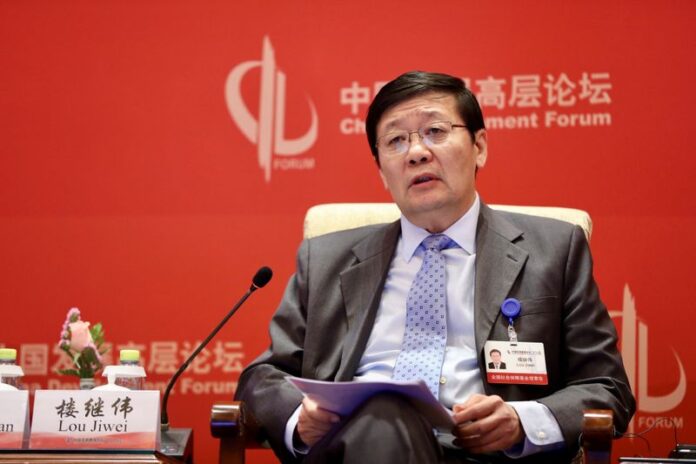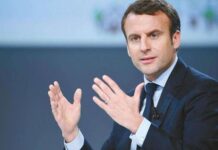BEIJING (Reuters) – Trade frictions between the United States and China may not ease in the near term even if Joe Biden becomes president, former Chinese finance minister Lou Jiwei said on Friday.
Lou, who is now retired and serves as a member of a consultative body to the Chinese parliament, made the remarks during the Caixin Summit in Beijing.
Stocks in China and other parts of Asia rose on Monday on news that Biden had clinched enough votes to win last week’s election, which investors hoped could lead to a thaw in frosty Sino-American ties. But President Donald Trump has not yet conceded.
When asked about the outlook for the U.S.-China economic and trade relationship, the outspoken former minister Lou said: “Even if Biden is elected, the U.S. suppression of China will be inevitable.”
Lou called for pragmatism in U.S.-China trade relations, saying it was difficult for Washington to cut its trade deficit, given the dollar’s position as the dominant global currency.
“After four years, the trade deficit (with China) is still widening. We need to return to common sense and return to science. Everyone needs to be reasonable,” said Lou.
Trump launched a trade war in the middle of 2018, demanding that China undertake sweeping structural reforms to open its markets and buy more from the United States.
Since then, both countries have imposed tariffs affecting billions of dollars worth of goods, causing a severe shock to the global supply chains.
But Lou said he would be cautiously optimistic about trade relations if Trump were to remain in office.
Trump also has called for change in how the World Trade Organization designates developing countries, complaining that nations such as China have taken unfair advantage of their status as developing economies under WTO rules that allow them to maintain higher tariffs and other trade barriers.
The Geneva-based body is currently seeking to find its next director-general after Brazil’s Roberto Azevedo stepped down a year early in August.
Nicolas Chapuis, ambassador of the European Union to China, urged a reform of multinational organisations especially WTO, with globalization facing a crisis.
China also needs to play a bigger role and advance from its current WTO status as a developing nation, Chapuis said at the Caixin Summit.
“China in WTO today is not the China in WTO in 2001,” Chapuis said.
“We expect China to come up with ideas, suggestions, and that we overcome the present obstacles of China defining itself as a developing country.”
In February, the Trump administration removed some countries including China from a U.S. list of developing nations, making it easier for Washington to investigate whether those nations are unfairly subsidising exports.
Fusion Media or anyone involved with Fusion Media will not accept any liability for loss or damage as a result of reliance on the information including data, quotes, charts and buy/sell signals contained within this website. Please be fully informed regarding the risks and costs associated with trading the financial markets, it is one of the riskiest investment forms possible.












